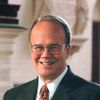— Lincoln Barrett, in Ladies' Home Journal, cited in Gallup and Castelli: "Although 95 percent of the Americans say they believe in God, it is by no means clear that they acknowledge the God of biblical revelation, who speaks to man from beyond himself and awakens in him a sense of dependency, moral unworthiness and obligation to obey His will."
— Gallup and Castelli observe that during a period of heightened civil religion (the 1950's), "the state of religious knowledge in this period (as in later decades) was anything but impressive. Fewer than half the respondents in a 1950 survey could give the names of any of the first four books of the New Testament."
— Gallup and Castelli: "Americans revere the Bible–but, by and large, they don't read it. And because they don't read it, they have become a nation of biblical illiterates… For example, eight in ten Americans say they are Christians, but only four in ten know that Jesus delivered the Sermon on the Mount. Fewer than half of all adults can name Matthew, Mark, Luke, and John as the four Gospels, while many do not know that Jesus had twelve disciples or that he was born in Bethlehem… The cycle of biblical illiteracy seems likely to continue–today's teenagers know even less about the Bible than do adults. The celebration of Easter… is central to the faith, yet three teenagers in ten–and 20 percent of those teenagers who attend religious services regularly–do not know why Easter is celebrated."
— Barna: Two in five evangelicals believe that "it does not matter what religious faith you follow because all faiths teach similar lessons about life."
— Barna: Seventy-seven percent of evangelicals believe that man is basically good by nature, with 84 percent of them saying that in the matter of salvation, "God helps those who help themselves." Well over half of churched evangelicals thought that it was, in fact, a quotation from the Bible.
— Barna: One-third of the evangelicals surveyed believe that we all pray to the same God and that faith in Christ is not absolutely necessary, so long as one is a good person.
— Protestants are more likely than any other group to say that "there is no such thing as absolute truth" (73%), with those who attend evangelical churches differing from unchurched Americans by a mere five percent in "strongly agreeing" with that statement. Over half of these church-going evangelicals agreed.
— Evangelicals are evenly split between those who agree and disagree with the statement: "Your first responsibility is to yourself."
— Yale professor, George Lindbeck: "When I first arrived at Yale, even those who came from nonreligious backgrounds knew the Bible better than most of those now who come from churchgoing families… With the loss of knowledge of the Bible, public discourse is impoverished."
— Test yourself: Can you name the Ten Commandments?





